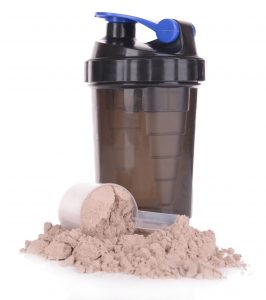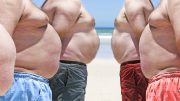Whey Supplementation Helps with Weight Loss.
What is whey protein (WP)? Proteins are the building blocks of our bodies and are made of chains of amino acids. Simply put, whey is one of the two proteinaceous compounds found in milk, with the other being casein. When a coagulant called renin is added to milk, it causes the fat and water-soluble portions to separate into two parts. The fat-soluble portion is curds made of casein, and the water-soluble portion is whey. It is an excellent source to increase your protein intake because it has a high degree of bioavailability[1] so it is absorbed faster than other sources.
Protein is vilified as a cause of kidney failure. This concept is just not the truth. It does not harm the liver or kidneys, but it can exacerbate kidney damage if damage already exists. People with kidney damage or failure should exercise caution when increasing protein intake without the guidance of a doctor because it may need to be restricted in people with renal failure to reduce toxin buildup. If your kidneys are healthy, you do not need to worry about nitrogen waste build-up because kidneys should get rid of the toxins as fast as you make them, but when you have kidney failure, your ability to get rid of these toxins is reduced. Diabetes, high blood pressure, and drugs toxic to our kidneys are the cause of most kidney diseases, and as long as you do not have kidney failure, you probably do not need to reduce your consumption.
Does WP have any benefits to a dieter? This question is much more complex than one would imagine. I have been reading on the topic for about 30 years. I read many research articles in college looking for evidence that backed the outlandish claims contained within the muscle and fitness magazine that I read. The multitude of articles presented it as being a miracle for weight and fat loss; increasing muscle mass and strength; decreasing appetite; reducing insulin resistance, cholesterol, and lipid reduction; increasing bone density; and reducing inflammation. I am sure there are more, but we are only going to focus on four areas in this article that are key to weight loss and maintenance. I am going to focus on weight loss, body fat, appetite, and muscle mass.
For years, weight builders have told me that using WP was perfect for weight loss. Is there any evidence to support this? I have read articles in muscle magazines that quoted many unbelievable results after starting on this supplement. The problem is that many of them were funded by supplement companies and the subject often took other supplements or steroids. They often made claims that WP would help you build massive lean muscles. The companies that sponsored the studies are no better than modern-day snake oil salesmen, but there is some merit to using WP supplementation.
Research on WP:
- Whey may increase weight loss. One study looked at 31 postmenopausal females who were placed on a diet higher in WP or carbohydrates. The research showed that replacing part of your calories with WP caused weight loss of about 8 pounds while increasing lean muscle mass[2]. This is significant because more lean body mass means more calories burned.
The bottom line: Whey protein promotes muscle retention and satiety even though it may not be superior to casein. WP is a good addition to your nutrition as you try to lose weight because of its superior bioavailability. I recommend that you eat food, but if you have to delay or skip a meal, a protein shake is a good way to bridge the gap until you get to your next meal or snack.
References
-
[1]J. Hoffman and M. Falvo, “Protein – Which is Best?,” J Sports Sci Med, vol. 3, no. 3, pp. 118–130, Sep. 2004. [PMC]
-
[2]M. C. Mojtahedi et al., “The Effects of a Higher Protein Intake During Energy Restriction on Changes in Body Composition and Physical Function in Older Women,” The Journals of Gerontology Series A: Biological Sciences and Medical Sciences, vol. 66A, no. 11. Oxford University Press (OUP), pp. 1218–1225, 27-Jul-2011 [Online]. Available: 10.1093/gerona/glr120″ target=”_blank” rel=”noopener noreferrer”>http://dx.doi.org/10.1093/gerona/glr120
-
[3]D. J. Baer, K. S. Stote, D. R. Paul, G. K. Harris, W. V. Rumpler, and B. A. Clevidence, “Whey Protein but Not Soy Protein Supplementation Alters Body Weight and Composition in Free-Living Overweight and Obese Adults,” Journal of Nutrition, vol. 141, no. 8. American Society for Nutrition, pp. 1489–1494, 15-Jun-2011 [Online]. Available: 10.3945/jn.111.139840″ target=”_blank” rel=”noopener noreferrer”>http://dx.doi.org/10.3945/jn.111.139840
-
[4]J. Lorenzen, R. Frederiksen, C. Hoppe, R. Hvid, and A. Astrup, “The effect of milk proteins on appetite regulation and diet-induced thermogenesis,” European Journal of Clinical Nutrition, vol. 66, no. 5. Springer Nature, pp. 622–627, 25-Jan-2012 [Online]. Available: 10.1038/ejcn.2011.221″ target=”_blank” rel=”noopener noreferrer”>http://dx.doi.org/10.1038/ejcn.2011.221
-
[5]W. Hall, D. Millward, S. Long, and L. Morgan, “Casein and whey exert different effects on plasma amino acid profiles, gastrointestinal hormone secretion and appetite.,” Br J Nutr, vol. 89, no. 2, pp. 239–48, Feb. 2003. [PubMed]
-
[6]K. Acheson et al., “Protein choices targeting thermogenesis and metabolism.,” Am J Clin Nutr, vol. 93, no. 3, pp. 525–34, Mar. 2011. [PubMed]










Be the first to comment on "Research: Whey Protein may help weight loss"